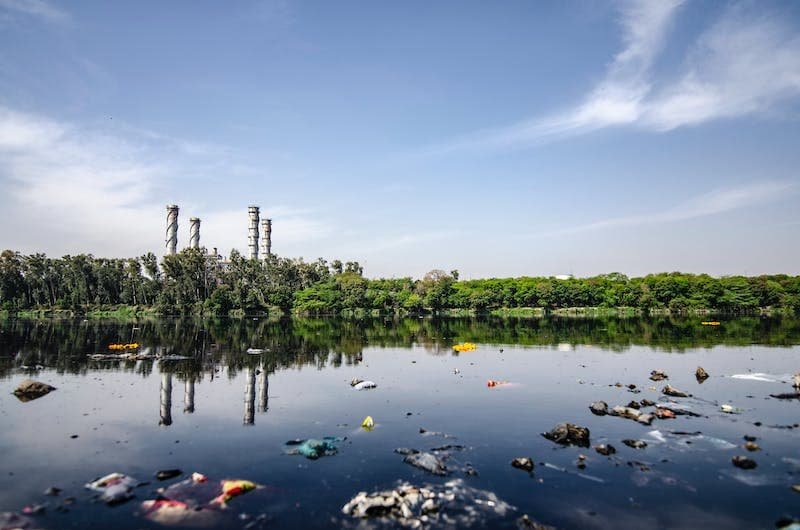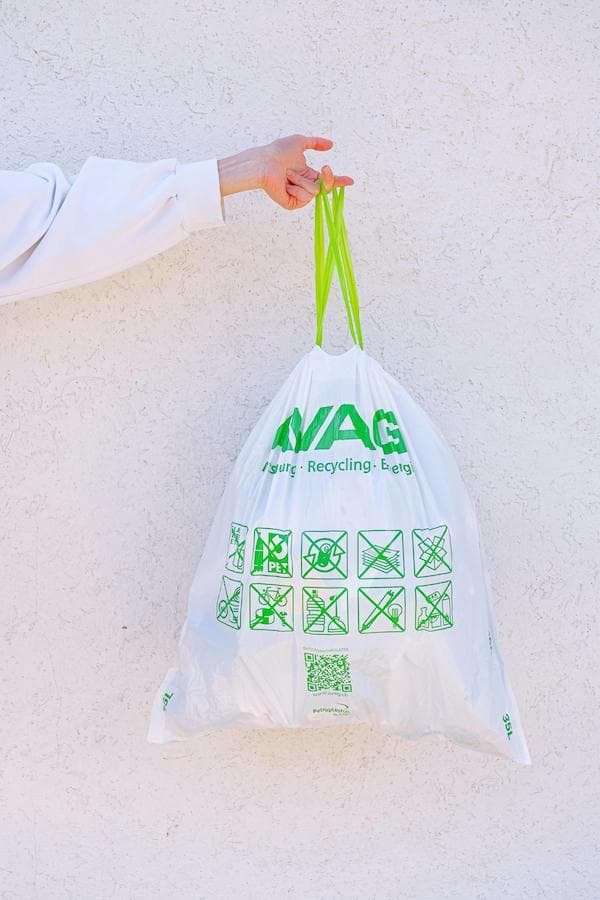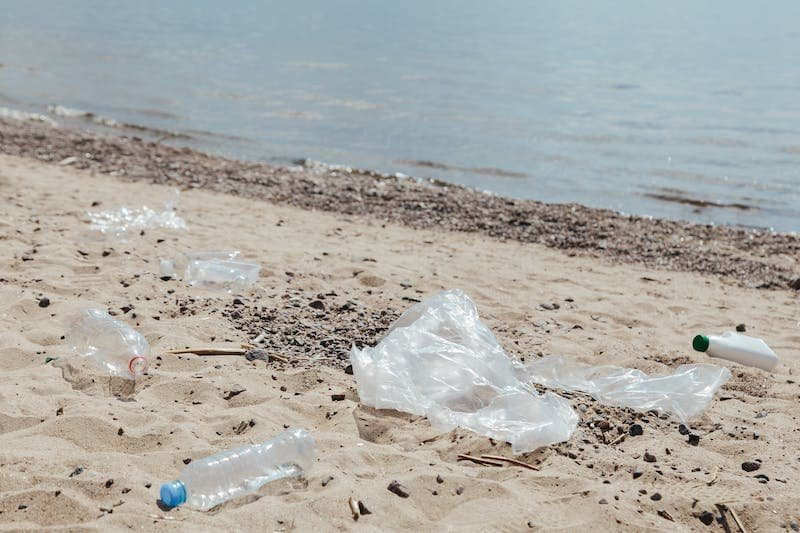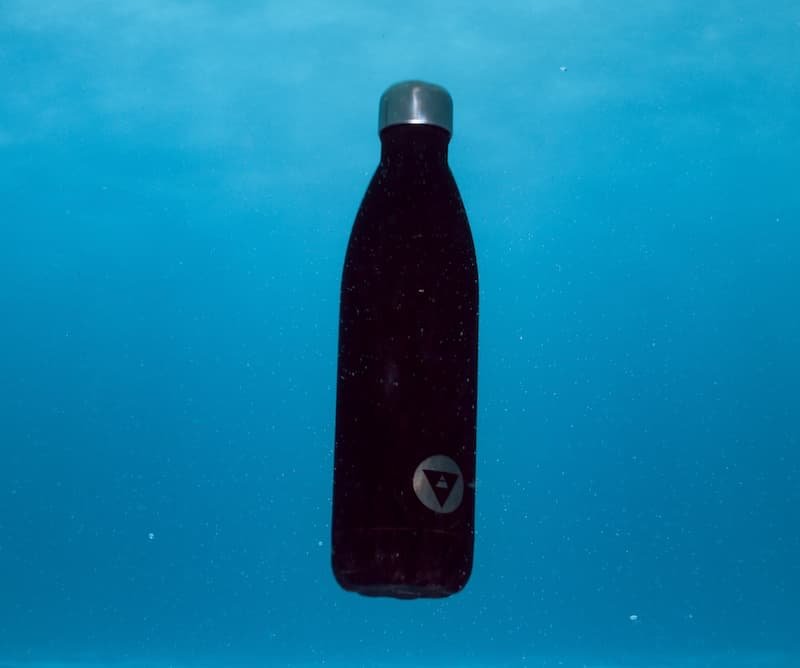
 Katie Wood
Freediver, Writer, Explorer
Katie Wood
Freediver, Writer, Explorer

 Katie Wood
Freediver, Writer, Explorer
Katie Wood
Freediver, Writer, Explorer
In recent years, the global community has witnessed a surge in awareness regarding the environmental repercussions of plastic pollution. This heightened consciousness has prompted individuals and businesses to seek more sustainable alternatives. Among these alternatives, the use of reusable water bottles has emerged as a significant step towards reducing plastic waste. In this blog post, we will delve into the environmental consequences of plastics, and the benefits of adopting reusable water bottles.
Plastic pollution has reached staggering proportions, with over 8 million metric tons of plastic entering our oceans annually, as reported by the Ocean Conservancy. This influx of plastic poses a severe threat to marine life and ecosystems, disrupting delicate balances and causing widespread ecological damage. Beyond the oceans, plastic waste infiltrates terrestrial environments, adversely affecting wildlife and vegetation.
Moreover, a comprehensive study published in the journal Science estimates that by 2025, the annual input of plastic into the oceans could increase tenfold if significant measures are not taken. This projection underscores the urgency of addressing the plastic pollution crisis on a global scale.
The degradation of larger plastic items into microplastics, particles smaller than five millimeters, introduces a new dimension to the environmental impact of plastics. According to research conducted by the World Health Organization (WHO), microplastics have been found in drinking water sources around the world, including tap water and bottled water. The long-term effects of ingesting these microplastics on human health remain a subject of ongoing research, emphasizing the need for proactive measures to mitigate their presence in our environment.

Additionally, a study published in the journal Environmental Science & Technology Letters highlights the prevalence of microplastics in the air, showing that atmospheric deposition contributes significantly to the microplastic load in various ecosystems. This airborne dispersion of microplastics further underscores the far-reaching consequences of plastic pollution.
Plastic pollution poses a direct threat to biodiversity, impacting both flora and fauna. The IUCN (International Union for Conservation of Nature) reports that marine species are particularly vulnerable, with over 800 species affected by plastic debris, including entanglement and ingestion. This includes iconic marine species such as whales, dolphins, and sea turtles.
Moreover, a study published in the journal Proceedings of the National Academy of Sciences (PNAS) reveals that terrestrial and freshwater ecosystems are not exempt from the detrimental effects of plastic pollution. The study estimates that over 1,000 species of land and freshwater invertebrates are affected by plastic debris, highlighting the pervasive impact on diverse ecosystems.

Businesses play a pivotal role in shaping the trajectory of environmental sustainability, and their commitment to responsible practices can have a profound impact on the planet. Corporate Social Responsibility (CSR) initiatives are instrumental in aligning businesses with sustainable practices. According to a report by Nielsen, 66% of consumers globally are willing to pay more for products and services from companies committed to positive social and environmental impact. This consumer trend emphasizes the economic benefits of CSR initiatives, making sustainability a strategic business imperative.
Moreover, data from the Global Reporting Initiative (GRI) indicates that 73% of the world's largest companies now report on sustainability, signaling a global shift towards transparent and accountable business practices. The integration of sustainability reporting into corporate frameworks enhances accountability and encourages businesses to adopt environmentally conscious strategies.
The environmental impact of packaging is a critical aspect of a business's ecological footprint. Research from McKinsey & Company reveals that 40% of plastic packaging is disposed of in landfills, and approximately 32% leaks into ecosystems, highlighting the urgent need for sustainable packaging solutions.

Businesses committed to sustainability actively seek alternatives to traditional packaging. For instance, a study by the Ellen MacArthur Foundation estimates that the adoption of circular economy principles in packaging could result in a reduction of 20% in global plastic packaging waste by 2030. This underscores the potential of businesses to drive positive change by embracing eco-friendly packaging solutions.
The implementation of sustainable supply chain practices is integral to reducing the environmental impact of manufacturing processes. The Carbon Disclosure Project (CDP) reports that companies that disclose environmental data to the CDP achieve an average of 6% reduction in their greenhouse gas emissions compared to non-disclosing peers.
Additionally, a study published in the Journal of Cleaner Production emphasizes the importance of sustainable supply chain practices in reducing overall environmental impacts. Businesses that prioritize sustainability in their supply chains contribute to the conservation of natural resources and the reduction of carbon emissions, thereby fostering a more resilient and environmentally friendly global economy. Certifications such as ISO 14001 for environmental management serve as tangible indicators of a business's commitment to sustainability.
Furthermore, compliance with environmental regulations is not only a legal necessity but also a critical component of sustainable business practices. A report by the United Nations Global Compact and Accenture Strategy highlights that companies are increasingly recognizing the business benefits of aligning with global goals, with 87% of CEOs considering the United Nations Sustainable Development Goals (SDGs) relevant to their business strategy.

The primary advantage of embracing reusable water bottles lies in the substantial reduction of single-use plastic consumption. 1 million plastic bottles are purchased every minute globally, according to data from The Guardian. This massive volume of single-use plastic bottles not only contributes to environmental pollution but also places a strain on recycling infrastructure.
By adopting reusable alternatives like "The Bottle" individuals can make a tangible impact. A study by the Earth Policy Institute suggests that replacing just one disposable plastic bottle with a reusable bottle can save approximately 170 plastic bottles from being produced and discarded over a year. Extrapolated on a global scale, this shift in consumer behavior could lead to a significant reduction in the demand for single-use plastics.
While the initial cost of a reusable water bottle may be higher than that of a single-use counterpart, the long-term cost savings are substantial. The Earth Policy Institute estimates that the average cost of tap water is about $0.002 per gallon, significantly lower than the cost of bottled water. Individuals who choose reusable bottles over single-use options can potentially save hundreds of dollars annually by opting for tap water refills or filtered water.
Additionally, when considering the broader economic impact, the reduced demand for single-use plastic bottles translates to lower production costs for manufacturers. This shift towards sustainability not only benefits individual consumers but also contributes to a more economically efficient and environmentally conscious market.

The production of plastic bottles is energy-intensive and relies on non-renewable resources. According to the Pacific Institute, manufacturing a one-liter plastic bottle requires approximately six times the amount of water contained in the bottle and results in significant greenhouse gas emissions. In contrast, reusable water bottles, particularly those made from materials like stainless steel, require less energy to produce and have a significantly lower carbon footprint over their lifetime.
The durability and longevity of reusable bottles contribute further to resource conservation. A study published in the journal Environmental Research Letters estimates that the energy savings from using a stainless steel water bottle over its lifetime are equivalent to the energy required to manufacture and dispose of 100 disposable plastic water bottles.
The adoption of reusable water bottles not only affects individual consumption patterns but also influences societal attitudes towards plastic waste. Research published in the journal Environment and Behavior indicates that individuals who use reusable bottles are more likely to engage in other eco-friendly behaviors, fostering a positive domino effect in the community.
Moreover, the visible and widespread use of reusable bottles can serve as a powerful social norm, influencing others to make sustainable choices. This collective shift towards reusable alternatives has the potential to create a lasting impact on the reduction of plastic waste on a global scale.